Study Abroad During Ramadan - What You Need to Know
Here’s your guide to the customs, traditions, and right social etiquette during Ramadan in the Middle East.
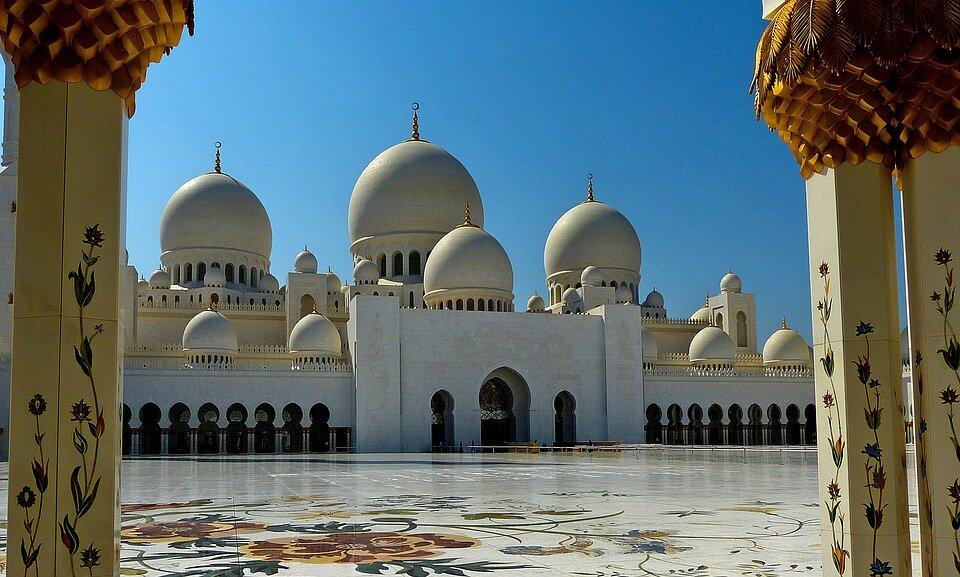
If it’s your first time studying abroad in the Middle East, it’s important to know what to expect during the holy month of Ramadan, a time of fasting and prayer for Muslims around the world. Here’s your guide to the customs, traditions, and right social etiquette during Ramadan in the Middle East.
What is Ramadan?
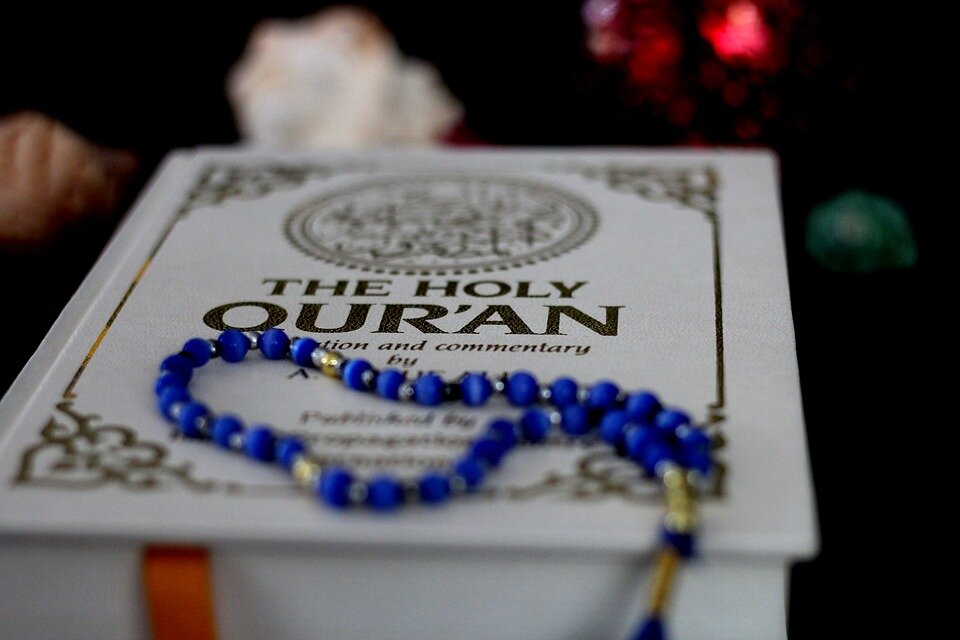
Ramadan is the ninth month of the Islamic lunar calendar and it is believed that the Quran, the religious text for Muslims, was revealed to Prophet Mohammed on the 27th day of Ramadan. As one of the five main acts of worship in Islam, religious Muslims around the world fast for an entire month during Ramadan as a means to spiritual growth through the practice of self-control, restraint, endurance, discipline, patience, humility, and gratitude. The date when Ramadan begins is different each year and is based on the lunar calendar.
From dawn to dusk, fit and able Muslims abstain from eating, drinking (even water), smoking, and sex, and use this time to reflect on life’s gifts, appreciate them, and find balance. The act of fasting is one part of a bigger exercise in improving one’s character through cleansing the body, mind, and soul, and learning how to let go of grudges, arrogance, vanity, and other negative traits such as gossip or partaking in idle hearsay. This is also a time for charity, benevolence, compassion, and kindness towards the less fortunate.
Fasting Muslims rise before the sun to eat a small meal called Suhoor to prepare for an entire day of fasting. The physical effects of the fast serve as a reminder of the plight of others in society who cannot afford basic necessities such as three daily meals. The fast is broken at sunset, after the evening prayers, during Iftar, a meal with family, friends, and loved ones. The month of Ramadan is immediately followed by the grand celebration of Eid-Al-Fitr, marked by lavish feasts, parties, and celebration.
What to Expect During Ramadan in the Middle East
Reduced Working Hours
In all Muslim countries in the Middle East, the laws allow for reduced working hours during Ramadan, especially for fasting Muslims, in acknowledgment of the hardships they face while abstaining from even a sip of water during the day in what can be harsh summer temperatures.
In the UAE for example, government employees have a five-hour workday while the working hours for the private sector are reduced by two hours. In Oman, the public sector works similarly from 9am to 2pm while the private sector works for a six-hour day. Similarly, working hours are reduced in countries like Bahrain, Qatar, and Jordan.
Museums, shops, and stores might have altered opening hours, so it’s best to check in advance especially since many outlets can choose to close for a few hours in the afternoon.
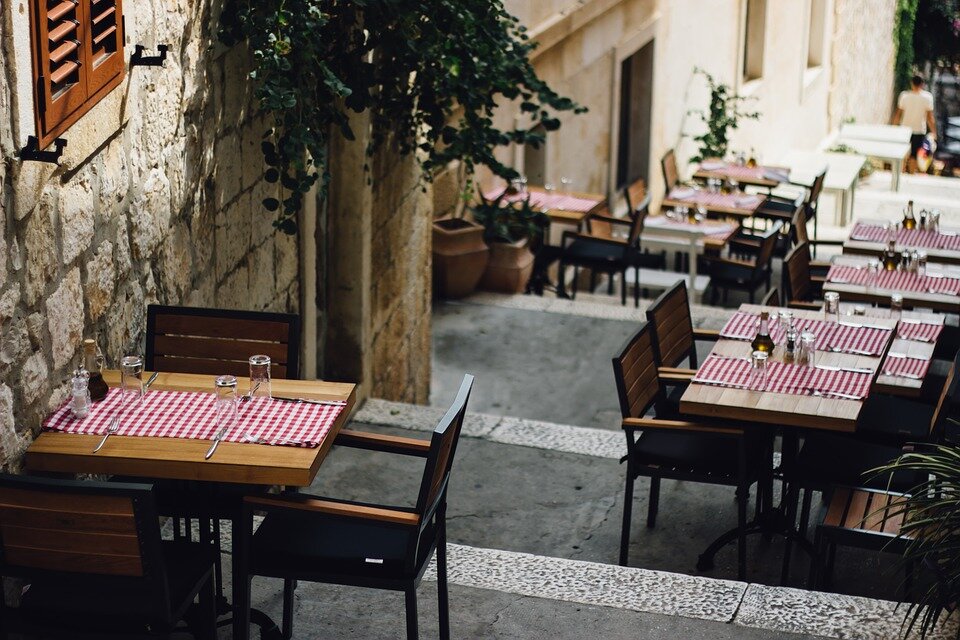
Dining During the Day
As a sizable part of the customer base, and the majority in the case of some cities, is fasting during Ramadan, a large number of restaurants and cafés close during the day and open to serve guests post sunset, even offering special Iftar menus and local Ramadan favorites.
That said, these days, there are a great many food outlets, from cafés and mall food courts to international restaurants that are open for non-fasting patrons throughout the day. In Dubai, such restaurants are usually close to universities and offices or inside shopping malls and have covered windows or enclosed sections in the interest of discretion so as not to offend fasting Muslims. In cities like Amman and Istanbul as well, there are many restaurants that are open during the day for dine-in and deliveries. In Doha, cafés and restaurants that are located in international hotels and cater to a clientele from around the world are open during the day.
If you tend to eat out at lunchtime between classes versus cooking or ordering in, it’s best to check in advance if your go-to restaurants and cafés are open during Ramadan. Even if they aren’t, it should be easy to find alternatives.
Breaking the Fast over Iftar
After the sunset prayers, it’s time for breaking the fast followed by a communal meal called Iftar. Friends, family, and loved ones gather to enjoy a leisurely meal that consists of traditional favorites, local to the part of the Middle East you’re in. It’s common for fasting Muslims to invite their non-fasting colleagues and classmates to Iftar and not only is it polite to accept the invitation; it’s also a great cultural affair to be part of.
While in the UAE, Oman, Bahrain, and Qatar, it’s common to break the fast with dates and water or rose-flavored milk, in Egypt, it’s commonly done with nutritious foul medames made of beans mixed with oil, salt, pepper, tomato, and onions, served with local bread and in Jordan, with yogurt, soup, and juice.
The Iftar meal originated as a wholesome but humble family meal but over the years has transitioned into a grand feast, often buffet-style. In Dubai and the rest of the UAE, while you’ll find Iftar dinners at restaurants and hotels serving everything from Mughlai biryani to Italian risotto, it’s worth seeking out a traditional Iftar to try Emirati dishes such as harees (a slow-cooked wheat and meat dish), fereed (bread with meat curry), and desserts like luqaimat and kunefeh (believed to have originated in Palestine).
Other regional Iftar specialties that you’d find not only in their home countries but also in cosmopolitan cities like Dubai and Abu Dhabi are the Jordanian mansaf (lamb and rice dish), Iranian firni (a sweet milk and rice dish), kebabs, Turkish borek, and Middle Eastern desserts like halva, mulukhiya, and baklava.
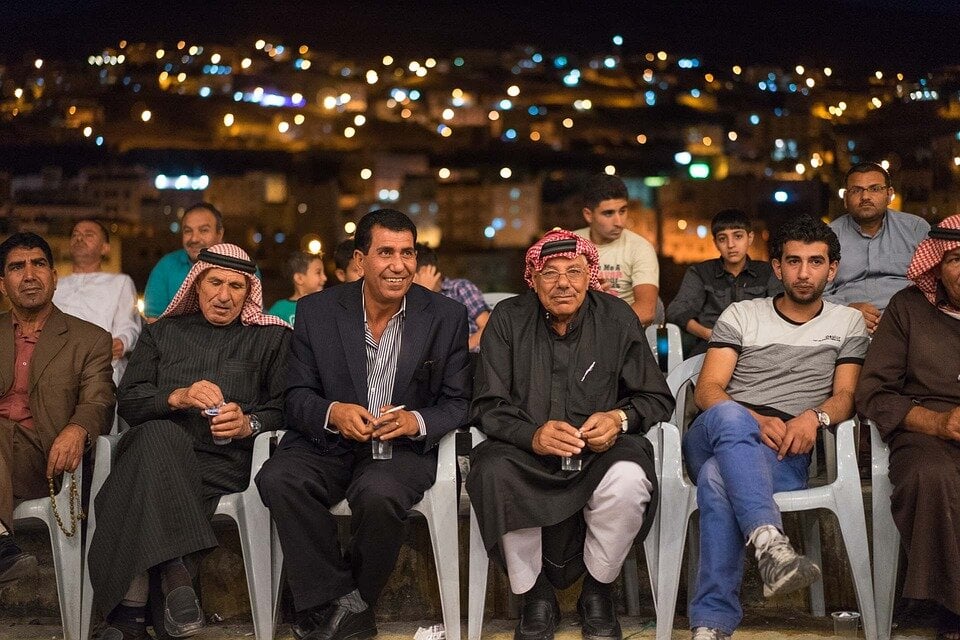
Ramadan Traditions
Every country has its own Ramadan traditions and sometimes what began in one country slowly spread across the region resulting in modern-day customs that are actually a beautiful blend of different cultures in the Arab world. One such example is the Egyptian fanous or colorful lanterns made of metal and glass that light up Cairo during Ramadan and are used decoratively all over the Middle East, but not quite as widely as in Egypt.
Traditionally a cannon was fired, once each during sunrise and sunset, to signify the period of the fast. The practice is believed to have originated in Egypt but continues today in the UAE, Qatar, and other countries. About an hour before sunrise, a man with a drum walks through the neighborhood, to wake fasting Muslims up in time for suhoor. This tradition continues in Istanbul, Cairo, and Amman.
In the UAE and other Gulf countries, the tradition of Hag Al Laila (known by other names outside the UAE) is one in which Emirati children dress up in traditional clothes and go around their neighborhoods two weeks before Ramadan asking for sweet treats, praising their hosts and wishing them well in gratitude. Their door-to-door singing is rewarded with sweets, nuts, and candy, all prepared in advance by families in the area. The practice is similar (though differently timed) to the Qatari Garangao, Bahraini Gergaoon, Omani Garangesho, and Kuwaiti Gerga’aan.
Charity and Benevolence
Charity is an important part of the spirit of Ramadan and it’s a time when local and expat communities come together to organize charity drives and Iftar dinners for the less fortunate. In Dubai, university, corporate, and social groups work for weeks to organize community Iftars or prepare Iftar dinner boxes to hand out to construction workers.
Nightlife and Entertainment
In Islamic countries such as the UAE, Oman, Qatar, Jordan, and Egypt, Ramadan is a month of prayer and the nationwide sentiment is one where excesses and flamboyance are to be avoided. As such the nightlife in terms of bars, pubs, clubs, and Western-style entertainment mellows down considerably in cities like Doha, Muscat, Dubai, Amman, and Cairo. Though you’d find bars serving alcohol still open in some of these cities in areas or hotels that cater to expats and tourists, don’t expect loud live music or concerts as usual.
Instead, take advantage of Ramadan festivities, Iftar dinners, night markets, and traditional music and storytelling celebrations that bring these cities to life post sunset. The nightlife continues as usual and restaurants and bars serve alcohol in mixed cities like Beirut and Istanbul, especially in the non-Muslim neighborhoods.
Social and Cultural Etiquette During Ramadan
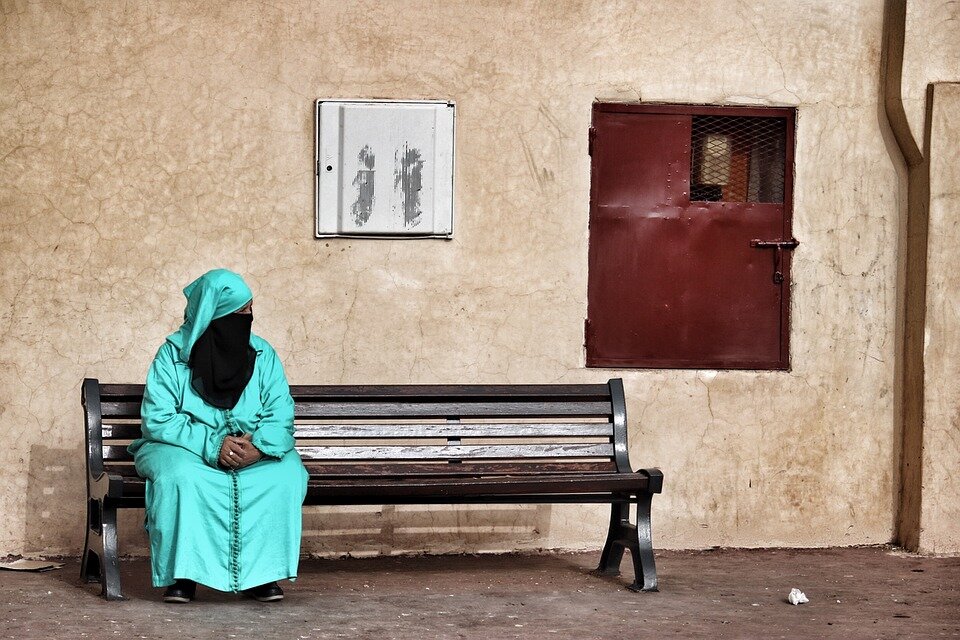
At the beginning of the month, it’s polite to wish your Muslim classmates and colleagues with the phrases ‘Ramadan Kareem’ (generous Ramadan) or ‘Ramadan Mubarak’ (blessed Ramadan).
In Islamic countries, eating and drinking during the day in public is prohibited and this includes drinking water or chewing gum. Of course, this doesn’t mean that you have to fast too if you’re outdoors; it just calls for being discreet and considerate. You can eat and drink in private and in special designated areas and covered restaurants meant for non-Muslims; most study abroad providers will advise you on the appropriate places to partake in food and drink during hours of fasting.
Expats and tourists should be especially mindful of respectful attire, even in relatively modern cities like Dubai, and even more so in Cairo, Muscat, Doha, and Amman. Dressing modestly with your shoulders and knees covered is recommended.
If you’re invited to a family home for an Iftar dinner, be sure to arrive ten to fifteen minutes before it’s time to break the fast so that your hosts don’t have to wait for you in case you’re stuck in traffic. Dress modestly and bring a box or basket of sweets (such as baklava) or fruits as a token of thanks.
Fasting during Ramadan takes its toll on Muslims and coupled with unbearable summer temperatures, it’s understandable that general productivity might be low and you might sense some lethargy in your interactions with others through the day, whether at university, work, or elsewhere. Be accommodating and compassionate, and keep impatience at bay.
Playing loud music in public is prohibited and frowned upon. Steer clear of loud house parties so as not to offend your neighbors who may be fasting and need to rise before the sun in time for suhoor.
For non-Muslim expats, residents, and tourists, Ramadan can be a good time to introspect (even if you're not fasting), to be positively swept up in the spirit of cleansing the mind and body, doing social good, and experiencing a different, sometimes more traditional side to otherwise modern cities. Through cultural events and iftar dinners, the holy month leading up to Eid Al Fitr brings together people from different religions and cultures.
